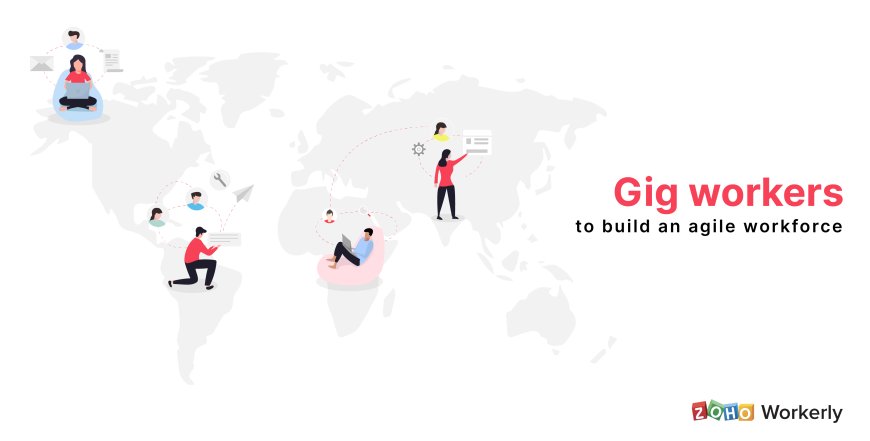Navigating the Gig Economy: Libertarian Perspectives on Work and Freedom
This article explores the gig economy's impact on individual freedom, examining how libertarian principles can empower gig workers and promote fair competition. It discusses the benefits of flexibility, choice, and market-driven solutions, emphasizing the role of government in fostering a supportive environment for gig workers.

The gig economy has dramatically transformed the landscape of work, offering individuals unprecedented flexibility and opportunities. However, it also raises important questions about the nature of work, individual freedom, and the role of government. This article examines the gig economy through a libertarian lens, advocating for policies that empower gig workers and promote fair competition.
Understanding the Gig Economy

The gig economy refers to a labor market characterized by short-term, flexible jobs, often facilitated by digital platforms. This includes freelance work, ride-sharing, delivery services, and various other on-demand tasks. The rise of the gig economy has been fueled by technological advancements and shifting consumer preferences, creating new avenues for income generation.
Impact on Individual Freedom

From a libertarian perspective, the gig economy aligns closely with the principles of individual freedom and autonomy. Gig workers enjoy the ability to choose when, where, and how much they work, allowing them to tailor their schedules to fit their personal lives. This flexibility empowers individuals to pursue multiple income streams, engage in entrepreneurship, and balance work with other responsibilities.
Moreover, the gig economy fosters a culture of self-reliance and personal responsibility. Workers are not bound by traditional employment contracts, allowing them to leverage their skills and interests in diverse ways. This independence supports the libertarian ideal of maximizing individual liberty, enabling workers to navigate their career paths without excessive government interference.
Libertarian Policies for Empowerment

While the gig economy offers many benefits, it is essential to address the challenges faced by gig workers, such as income instability, lack of benefits, and regulatory hurdles. Libertarians advocate for policies that empower gig workers while minimizing government overreach. Here are some proposed measures:
-
Deregulation: Simplifying regulations surrounding gig work can reduce barriers to entry for new workers and platforms. By minimizing bureaucratic hurdles, the government can foster a more competitive environment where gig workers can thrive.
-
Portable Benefits: Advocating for portable benefits allows gig workers to access essential services like health insurance, retirement plans, and paid leave. These benefits would not be tied to a single employer, ensuring that gig workers have access to necessary support without compromising their flexibility.
-
Tax Reform: Simplifying the tax code for gig workers can alleviate some financial burdens they face. Allowing for greater deductions related to business expenses and streamlining tax reporting can encourage more individuals to participate in the gig economy.
-
Education and Training: Providing resources for skill development can help gig workers enhance their capabilities, leading to higher-paying opportunities. By fostering an environment of continuous learning, individuals can adapt to changing market demands.
Promoting Fair Competition

A key principle of libertarianism is the promotion of fair competition. In the gig economy, this means ensuring that platforms operate transparently and fairly, providing equal opportunities for all workers. To achieve this, the following strategies can be employed:
-
Transparent Rating Systems: Platforms should implement fair and transparent rating systems that accurately reflect worker performance. This can help ensure that gig workers are evaluated based on their merits, promoting a competitive landscape.
-
Anti-Discrimination Policies: Strong anti-discrimination policies should be enforced to protect gig workers from bias based on factors such as race, gender, or background. This can help create a more equitable environment for all participants in the gig economy.
-
Encouraging Innovation: Government policies should encourage innovation within the gig economy by supporting new platforms and technologies that enhance worker opportunities. By fostering an environment conducive to innovation, the government can help expand the gig economy and increase options for workers.
Conclusion
The gig economy represents a significant shift in the way we think about work, offering opportunities for flexibility and autonomy. From a libertarian perspective, empowering gig workers through deregulation, portable benefits, tax reform, and education is essential for promoting individual freedom. Moreover, fostering fair competition ensures that all workers have equal opportunities to succeed.
As the gig economy continues to evolve, embracing libertarian principles can lead to a more supportive environment for workers, allowing them to navigate their careers on their own terms. In doing so, we can create a future where work is not just a means of survival, but a pathway to personal fulfillment and freedom.
FAQs
1. What is the gig economy?
The gig economy refers to a labor market characterized by short-term, flexible jobs often facilitated by digital platforms. Examples include freelance work, ride-sharing, and on-demand services like food delivery.
2. How does the gig economy promote individual freedom?
The gig economy allows individuals to choose when, where, and how much they work. This flexibility empowers workers to tailor their schedules to fit personal needs and pursue multiple income streams.
3. What are the main challenges faced by gig workers?
Gig workers often face challenges such as income instability, lack of benefits (like health insurance and paid leave), and regulatory hurdles that can impact their earnings and job security.
4. What libertarian policies can support gig workers?
Libertarian policies that can empower gig workers include:
- Deregulation: Reducing bureaucratic barriers for gig work.
- Portable Benefits: Allowing access to essential services regardless of the employer.
- Tax Reform: Simplifying the tax code for gig workers.
- Education and Training: Providing resources for skill development.
5. How can fair competition be promoted in the gig economy?
To promote fair competition, strategies such as implementing transparent rating systems, enforcing anti-discrimination policies, and encouraging innovation among platforms can be employed.
What's Your Reaction?


















































